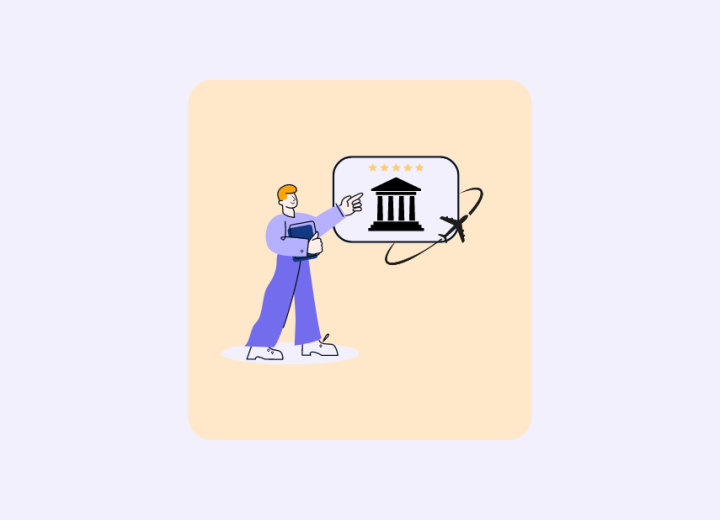How to Prepare for the Phone Interview
One of the benefits of a phone interview is that you can’t see the person you’re talking to, which makes it less intimidating. However, that doesn’t mean you should take it lightly. You still need to be well-prepared for phone interviews by doing self-study, conducting mock interviews, working with expert coaches, and assessing your phone condition.
Do Self-Study Sessions.
To ace phone interviews in investment banking, take some time to prepare alone. Your preparation should include:
- Researching the common phone interview questions in Investment Banking.
- Researching the company including work culture, values, history, deals, and business areas.
- Knowing your resume inside out to discuss any experience and accomplishments naturally.
- Studying the job description to present yourself as the most qualified candidate.
- Learning the STAR method and structuring your responses to common questions effectively.
- Practicing technical investment banking areas like valuation methods, financial statements, and financial modeling.
Practice with Mock Interviews.
As you practice the most commonly asked questions during your self-study, everything may feel right. But articulating your responses when talking to someone else on the phone is a whole different experience.
So, do mock interviews with peers to get valuable feedback and get comfortable articulating your thoughts verbally. The more sessions you do, the more confident you’ll become, including during the day of the actual interview.
👉 On our Meeting Board, you can find peers to practice with for your phone interview.
Work with an Expert Interview Coach
Once you feel confident enough, you should consider working with an interview coach. Even one mock interview with an expert can help you increase your chances of landing the job because they are more likely to mimic the company’s recruiter or team more realistically. Then they will provide valuable and personalized feedback that lets you know where you’re doing well and where you need to improve.
👉 Have a look at our Coach Directory if you want to work with an expert to level up your skills.
Check That Your Phone Is Working Well.
Ensure your phone is working well, especially the mic. The last thing you want is to keep asking the interviewer to repeat the question or for the interviewer to keep saying they can’t hear you. This can be irritating and cause the interview to end prematurely, reducing your chances of making it to the next step.
Common Investment Banking Phone Interview Questions
You can expect different types of questions during your interview that inquire about your behavioral and technical skills. It’s also common to get market-related questions. Here are a few examples and possible answers. However, you can always tweak the responses to suit you.
Question: Why have you chosen investment banking as a career?
Possible answer: "I knew I wanted to work in finance because of my interest in analyzing businesses, strong numerical and analytical skills, and desire to solve complex financial problems. But my interest in investment banking sparked during my first internship where I saw how bankers help support companies in making strategic decisions that also impact the economy. My other internships that followed confirmed my interest and fit for the fast-paced industry."
Question: How do you cope with high-stress situations?
Possibe answer: "During high-stress situations, I do my best to prioritize tasks, break down complex problems into manageable steps, and increase my working speed. I also rely on teamwork to ensure I meet deadlines efficiently while maintaining high-quality work.
For instance, I got a last-minute request to compile market data for a client pitch during one of my internships. I had to deliver accurate and comprehensive data within three hours. In response, I listed down the steps to follow, prioritized tasks, utilized Excel shortcuts, and communicated with my supervisor at every step to minimize errors and seek clarification. Within three hours and about five minutes, the data was ready and the responsible individual was able to make a successful client presentation."
Question: What is the appropriate discount rate to use in an unlevered discounted cash flow (DCF) analysis?
Possible answer: "The appropriate discount rate for an unlevered DCF analysis is the Weighted Average Cost of Capital (WACC). WACC accounts for both the cost of debt and equity, weighted by their respective proportions in the company's capital structure. It reflects the required return for all investors and is used to discount the company’s free cash flows to determine its enterprise value."
Question: What is a company’s beta and how do you calculate it?
Possible answer: "A company’s beta measures its volatility relative to the overall market, indicating its risk level compared to a broad index like the S&P 500. It is calculated using regression analysis of the company's stock returns against market returns."
Question: Why should we hire you?
Possible answer: "You should hire me because I have a strong foundation in finance, a strong work ethic proven through my previous work experience, and my proven interest in investment banking evident through my course choices and internships. I believe that my analytical skills, attention to detail, and ability to collaborate effectively make me a suitable fit for this bank."
Communication Tips for a Strong Impression
As we mentioned earlier, phone interviews are all about your ability to listen carefully and respond clearly. Some tips to keep in mind include the following:
- Speak in a clear tone without mumbling. Relax and try to pace yourself as you respond.
- Keep your responses concise and well-structured.
- Listen carefully and avoid interrupting the interviewer.
- Take a moment to think through the questions instead of rushing to respond.
- Avoid generic responses and always support your points with experience or facts.
Key Takeaways
IB firms use phone interviews to determine if you have the skills, knowledge, and personality they’re seeking. Practicing common investment banking interview questions and doing your homework on the company can help you stand out . The interviews contain a mixture of technical, behavioral, and market-related questions. Listen carefully, respond clearly, and ensure your answers show why you’re the right fit.




